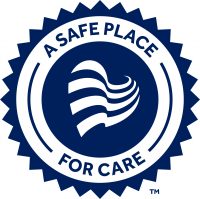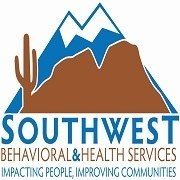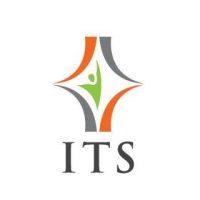Partners in Recovery - West Valley
Drug Rehab Center in Peoria, Arizona
Partners in Recovery - West Valley in Peoria, Arizona, is a Dual Diagnosis, Mental Health Treatment Facility offering outpatient levels of care with a focus on addressing the complex needs of individuals with mental health and substance abuse issues, providing a supportive environment for recovery.
About Partners in Recovery - West Valley in Arizona
Partners in Recovery - West Valley is a Dual Diagnosis, Mental Health Treatment Facility located in Peoria, Arizona. Dedicated to helping individuals suffering from Dual Diagnosis and Mental Health disorders, this facility offers outpatient levels of care. With the goal of providing comprehensive treatment, Partners in Recovery - West Valley is affiliated with Partners in Recovery and accepts Private Health Insurance. Their focus is on addressing the complex needs of individuals with both mental health and substance abuse issues, providing a supportive environment for those seeking recovery.
Partners in Recovery - West Valley offers a range of services and treatment methods for addiction and substance abuse. Utilizing a dual diagnosis approach, they recognize the importance of addressing both mental health and substance use issues simultaneously. Their treatment programs often involve therapy sessions, counseling, and medication management, tailored to the specific needs of each individual. With a focus on outpatient care, they provide flexibility in scheduling and encourage ongoing support and engagement in the community. This facility aims to help individuals achieve and maintain sobriety while also addressing their mental health concerns in a compassionate and individualized manner.
Genders
Ages
Modality
Additional
Conditions and Issues Treated
A “dual diagnosis” is when the individual has two medical issues at the same time. The top co-occurring mental disorders with addiction are depression, anxiety, ADHD, bi-polar disorder. Addiction is also considered a mental illness that is not a choice but rather a medical condition. Addiction can be caused by any number of underlying issues.
Dual diagnosis is provided by Partners in Recovery - West Valley to treat addictive tendencies as well as any untreated mental illnesses. This ensures successful long term health and recovery for patients after treatment has been completed.
Dual diagnosis is provided by Partners in Recovery - West Valley to treat addictive tendencies as well as any untreated mental illnesses for people in Arizona. This ensures successful long term health and recovery for patients after treatment has been completed.Levels of Care Offered
This center offers a variety of custom treatment tailored to individual recovery. Currently available are Dual-Diagnosis, Outpatient, with additional therapies available as listed below.
Outpatient programs at Partners in Recovery - West Valley, the Peoria resident can live with their family while continuing with their job or studies. Treatment includes educating the patient on drug abuse, medications, and counseling sessions at the individual or group level. Outpatient treatment plans cover diagnosis, detoxification, management, and counseling. They are a popular option for those who have graduated from inpatient facilities.
Therapies & Programs
Individual therapy is a form of counseling where you meet with a trained professional one-on-one. Meeting with a therapist in this setting allows for a personal and trusting relationship to be built. This allows the patient to open up about sensitive or private issues they may not feel comfortable discussing in a group. Individual therapy helps identify the root causes of your addiction, which can help prevent relapse.
Group therapy sessions are another common addiction recovery service. These group sessions typically involve six to 12 addicts who meet regularly with a trained professional for support and guidance.
During these sessions, the group shares their experiences with one another and provides feedback that can help each member avoid relapse or overcome specific obstacles they are facing in their recovery process. With this type of support and guidance, addicts can feel like they are part of a community that understands their struggles and will help them get through the hard times.
Many people struggling with drug addiction have experienced some form of trauma in their lives. It is crucial that these individuals seek out professional help; otherwise, their drug abuse and addiction will likely continue.
Therapists and counselors at drug treatment centers employ several treatment programs to help people struggling with drug addiction, including trauma therapy. Trauma therapy helps people dealing with addiction by allowing them to confront the traumas of their past and move past them.
It is important to note that trauma therapy should not be confused with PTSD (post-traumatic stress disorder). Rather, it is used to treat the effects of trauma, which are often at the root of addiction.
Dialectical Behavior Therapy was developed in the 1980s to treat chronically suicidal individuals. It is a cognitive-behavioral therapy that combines standard DBT with strategies derived from Zen Buddhism, such as mindfulness training.
DBT has been adapted for use with other types of psychiatric problems, including eating disorders, substance abuse disorders, borderline personality disorder, posttraumatic stress disorder (PTSD), and other personality disorders. Dialectical Behavior Therapy is considered a psychosocial treatment of BPD. This means that while it can be used alone or in conjunction with drug treatments, DBT does not rely on medications to treat the disorder. Instead, DBT aims to help patients change their thinking and behavior.
Cognitive Behavioral Therapy (CBT) focuses on the underlying thoughts and behaviors that caused the problem of addiction in the first place and may cause a relapse. Negative feelings are common in drug abuse disorders, but they can lead to co-occurring disorders if not recognized. CBT involves strategies that help to change the behavior pattern by restructuring negative thoughts into positive ones. It helps to remove these feelings, and it provides long-term benefits. Also, CBT promotes self-awareness and self-control. It can be administered as a monotherapy or as part of combination therapy.
CBT can improve the patient’s mood, reduce drug cravings and boost success rates on treatment plans. Regular practice can help individuals handle negative attitudes, thoughts, and feelings without turning to drugs or alcohol. The core belief of Cognitive Behavioral Therapy (CBT) is that one’s moods, behaviors, and actions are all connected. Individuals can improve their quality of life using CBT. It helps addicts understand the patterns of thought and feelings that cause them to use drugs or alcohol and develop a healthy response.
Medical nutrition therapy for addiction helps patients at Partners in Recovery - West Valley avoid “trigger” foods. Someone who craves alcohol may be sugar addicted. Eating a balanced diet with adequate protein, vegetables, and fruit can help reduce drinking urges.
MNT is a type of addiction treatment that teaches patients about healthy eating habits while counseling them. These sessions include meal planning, cooking demonstrations, shopping tips, grocery store tours, and food education.
Nicotine replacement therapy is a drug treatment that allows people to get the effects of nicotine without chewing or smoking. The therapy is often done with a patch, and doses of nicotine are reduced until nicotine is no longer needed. NRT helps smokers get nicotine into their system without resorting to smoking, and it has been shown to be an effective way to help people quit smoking. Coupling NRT with counseling and other means of support gives long-term smokers a better chance of removing their unhealthy habit.
Patient Experience
Experiential Therapy at Partners in Recovery - West Valley
Drug addiction causes the formation of abnormal connections between neurons in the brain to form due to repeated exposure to drugs. These connections are responsible for addictive behaviors to drugs. Experiential therapy is done with patients individually and is different from traditional talk therapy. This therapy can help people revisit past traumas, heal, and move on in life in a more authentic way.
Experiential therapy uses activities to recreate experiences that may have caused trauma or negative emotions. These activities include role-playing, arts and crafts, animal care, music, or rock climbing. The individual will gradually experience calmness and love and change their perception positively through this therapy. Other than drug addiction, experiential therapy can be helpful for behavioral or eating disorders.
Payment Options Accepted
For specific insurance or payment methods please contact us.
Is your insurance accepted?
Ask an expert, call (888) 674-0062
Partners in Recovery Associated Centers
Discover treatment facilities under the same provider.
- Partners in Recovery - Wickenburg in Wickenburg, AZ
- Partners in Recovery - Metro Center in Phoenix, AZ
- Partners in Recovery - Mesa in Mesa, AZ
Learn More About Partners in Recovery Centers
Additional Details
Specifics, location, and helpful extra information.
Peoria, Arizona 85381 Phone Number(623) 583-0232 Meta DetailsUpdated November 25, 2023
Staff Verified
Partners in Recovery - West Valley Patient Reviews
There are no reviews yet. Be the first one to write one.
Peoria, Arizona Addiction Information
Arizona has some of the highest rates of prescription drug abuse in the United States. Methamphetamines, heroin and morphine are among the most commonly abused substances. Prescription pain relievers were prescribed to 348 million people in 2012, enough to medicate every adult in Arizona for 2 full weeks. The number of people with substance use disorders in Arizona has remained relatively constant over the past few years.
According to the most recent statistics, the drug addiction problem in Peoria, Arizona, is pretty bad. In 2012, there were 2,526 admissions to treatment facilities for drug abuse in Peoria, which accounted for 9% of all admissions in the state. Peoria ranked 5th in the state for per-capita admissions to treatment facilities. It's important to speak with a doctor or specialist to determine which type of treatment is best for you.
Treatment in Nearby Cities
- Sun City, AZ (2.1 mi.)
- Chinle, AZ (232.7 mi.)
- Holbrook, AZ (148.7 mi.)
- Tolleson, AZ (11.3 mi.)
- Yuma, AZ (152.2 mi.)
Centers near Partners in Recovery - West Valley
The facility name, logo and brand are the property and registered trademarks of Partners in Recovery - West Valley, and are being used for identification and informational purposes only. Use of these names, logos and brands shall not imply endorsement. RehabNow.org is not affiliated with or sponsored by Partners in Recovery - West Valley.







